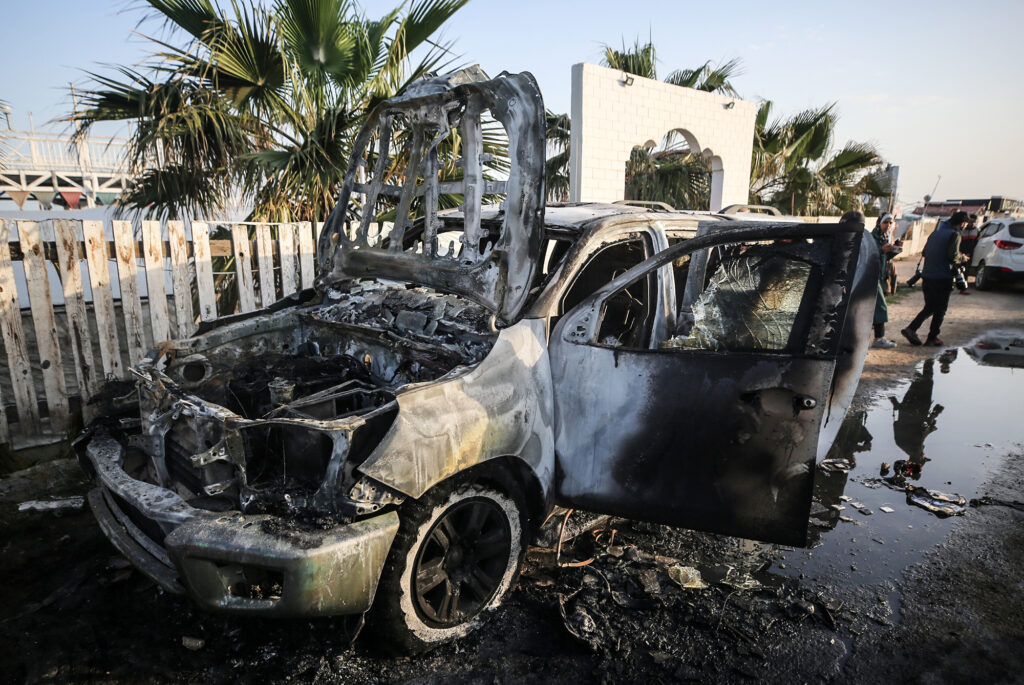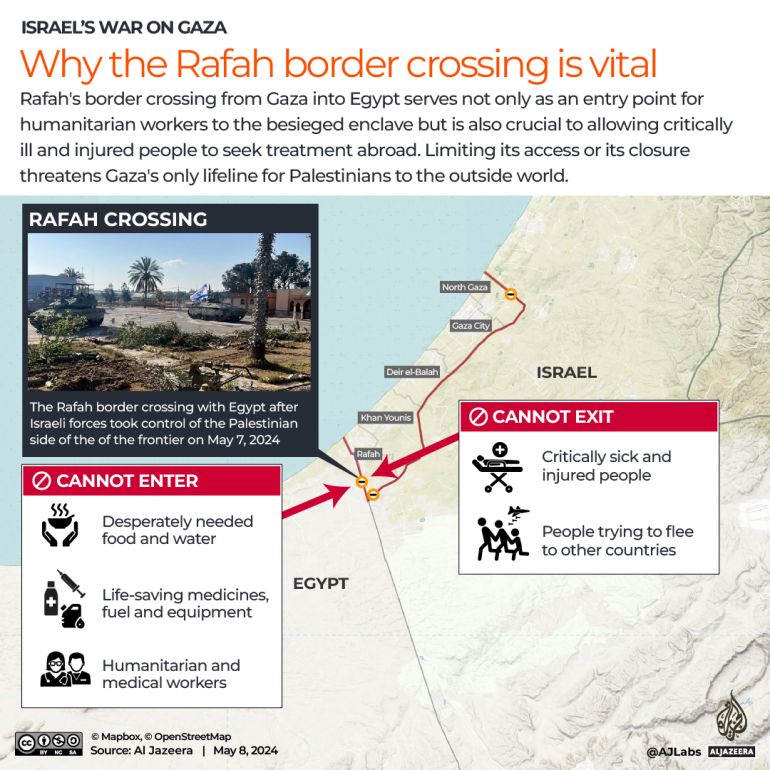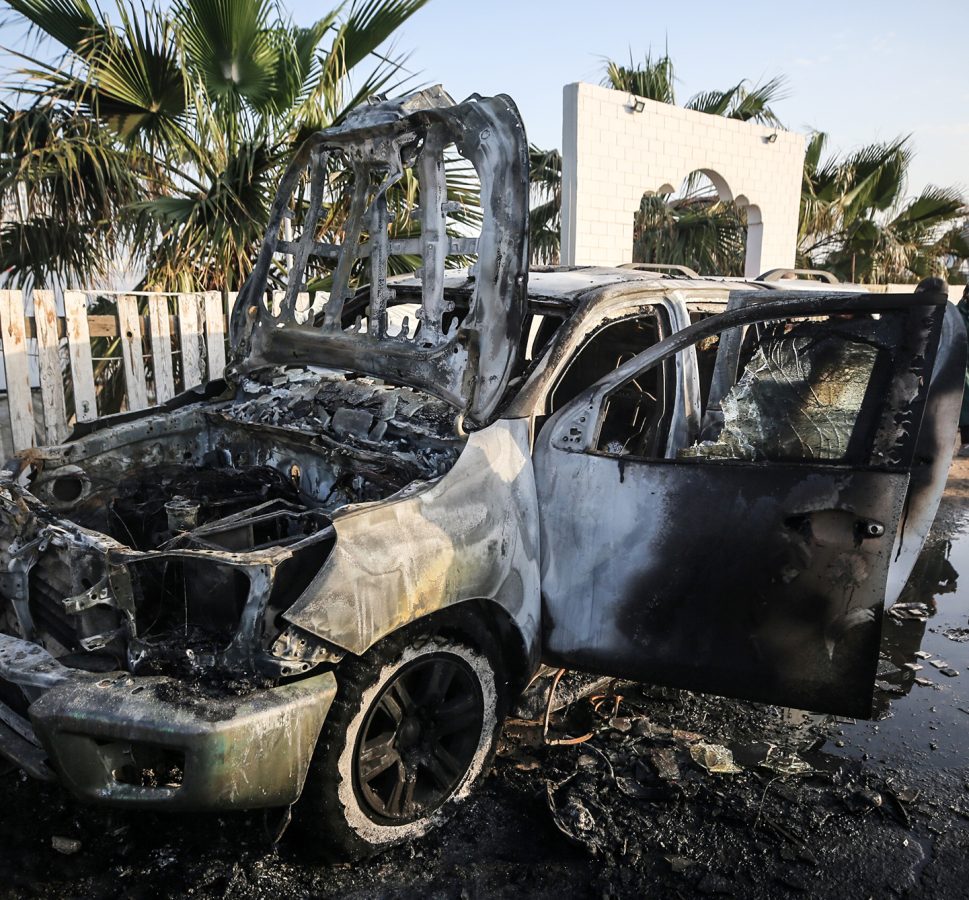
Human Rights Watch says aid workers’ convoys and facilities have been targeted at least eight times since last October.
Israeli forces have attacked humanitarian aid convoys and buildings in the Gaza Strip at least eight times since October despite being given coordinates to ensure their protection, Human Rights Watch (HRW) has said in a new report.
At least 31 aid workers and their companions were killed, the international rights group said in a new report published on Tuesday.
“Israeli authorities did not issue advance warnings to any of the aid organisations before the strikes,” the report said.
“The eight incidents reveal fundamental flaws with the so-called deconfliction system, meant to protect aid workers and allow them to safely deliver life-saving humanitarian assistance in Gaza,” it added.
At least 254 aid workers have been killed in Gaza since October 7, according to the United Nations, when the current conflict erupted. Of them, 188 are personnel from the United Nations Relief and Works Agency for Palestine Refugees in the Near East (UNRWA), the report said.
On Monday, a UN vehicle was hit on the way to a hospital in Gaza, killing at least one UN staff member and injuring at least one more.
The HRW report said aid workers have also been unable to leave Gaza since Israeli forces seized control of and closed the Rafah crossing on May 7.
During a recent visit to Cairo and northern Sinai, near the border between Egypt and Gaza, HRW met with staff from 11 humanitarian organisations and UN aid agencies operating in Gaza.
They said Israeli attacks on aid workers had forced them to take various measures that for some included suspending activities for a period of time, reducing their staff inside Gaza, or severely restricting their aid activities in other ways.

Reporting from Amman, Jordan, Al Jazeera’s Stefanie Dekker said that the United States started pressuring Israel to stop striking aid workers after it hit a convoy of the US-based charity World Central Kitchen in Deir el-Balah, central Gaza, on April 1, killing seven people and triggering global outrage.
“It hit home in a different way, in a different way, unfortunately, that 35,000 Palestinians dead simply doesn’t,” Dekker said.
The deadly attack on a UN vehicle showed that Israel has not changed anything, according to Dekker, who added that Israel has also not done enough to stop Israeli protesters from blocking and destroying aid trucks heading to Gaza.
The latest target was a Jordanian convoy which had to go through the occupied West Bank to reach the Karem Abu Salem (Kerem Shalom) crossing in the south of the Gaza Strip. Right-wing Israeli protesters blocked it and set it on fire after looting it, Dekker reported.
The other attacks HRW documented include one on a Doctors Without Borders (Medecins Sans Frontieres, or MSF) convoy on November 18, on a UNRWA guest house on December 9 and on an International Rescue Committee (IRC) and Medical Aid for Palestinians (MAP) guest house on January 18.
“Israel’s allies need to recognize that these attacks that have killed aid workers have happened over and over again, and they need to stop,” said Belkis Wille, associate director at HRW.
The HRW report also found that Israeli authorities are using starvation as a method of warfare in Gaza.
“Pursuant to a policy set out by Israeli officials and carried out by Israeli forces, the Israeli authorities are deliberately blocking the delivery of water, food and fuel, willfully impeding humanitarian assistance, apparently razing agricultural areas, and depriving the civilian population of objects indispensable to its survival,” the organisation said.
“Children in Gaza have been dying from starvation-related complications,” it added.






